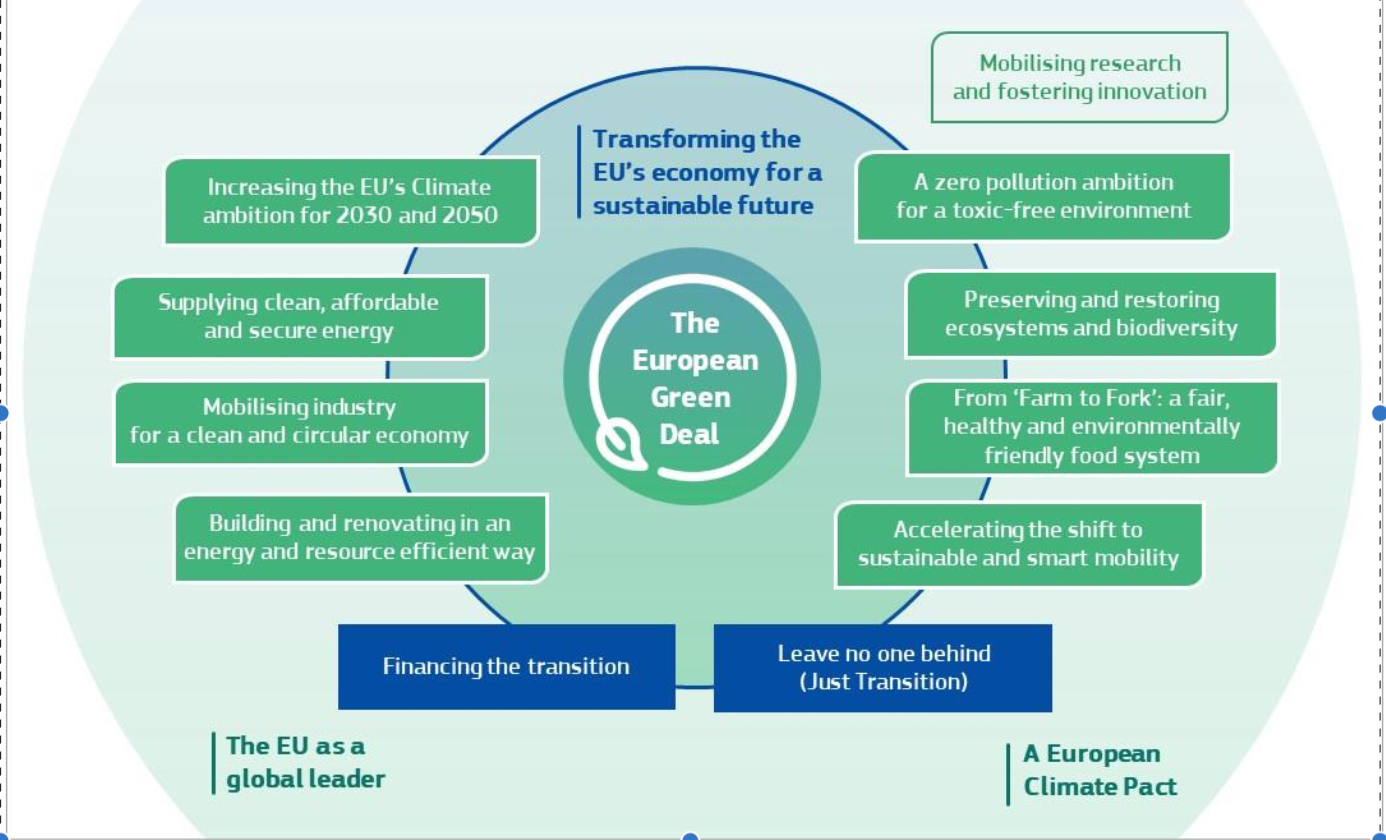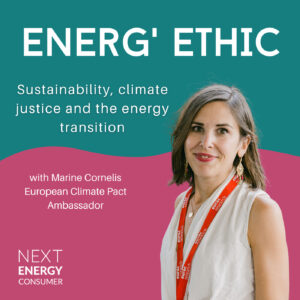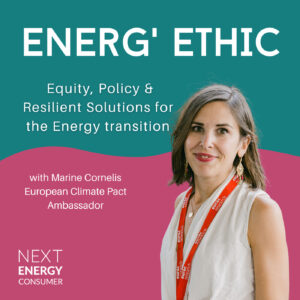Here are a few intakes on energy poverty and social justice extracted from the European Green Deal Communication presented on 11 December 2019. This is not an exhaustive analysis.
- The first point is – of course – the Just Transition fund “to leave no one behind”. The most vulnerable people and territories are likely to suffer more from climate change and environmental degradation. There are different needs for support to become more resilient and fit for the transition. As a result, the Just Transition Mechanism will focus on the most vulnerable people, regions and sectors most affected by the transition and currently dependent on more polluting systems. Support will be linked to promoting a transition to low-carbon and climate-resilient activities. To protect those most affected, workers and citizens will have access to re-skilling programmes, jobs in new economic sectors or energy-efficient housing. The fund will mobilise European public and private resources as well as the EIB Group. The Commission will work with the Member States and regions to help them put in place territorial transition plans.
- A “renovation wave” is fundamental: the Communication describes renovation schemes as “effective programmes” to reduce energy bills and help the environment”. The EU and the Member States will “engage in a ‘renovation wave’ of public and private buildings”. “Particular attention will be paid to the renovation of social housing, to help households who struggle to pay their energy bills.” The Commission sets the intention to work with stakeholders on a new initiative on renovation in 2020.
- The Commission aims to ‘rigorously’ enforce the legislation related to the energy performance of buildings. It will start with an assessment in 2020 of Member States’ national long-term renovation strategies (as part of the requirements under the Energy Performance of Buildings Directive).
- The issue of jobs and skills, and in particular the conversion to “greener” jobs, is recurrent, in particular in the industrial and construction sectors. The circular economy also “offers great potential for new activities and jobs.”
- The Commission strongly encourages Member States to enforce and undertake social fair action programmes and strategies. The intention to build a socially just transition “must also be reflected in policies at EU and national level. It includes investment to provide affordable solutions to those affected by carbon pricing policies, for example, through public transport, as well as measures to address energy poverty and promote re-skilling.”
- To that aim, in 2020, the Commission will produce guidance to assist the Member States in addressing the issue of energy poverty.
- The European institutions have learned their lesson after the yellow vest crisis in France and the debate over the “fairness” of the carbon tax. The reference is obvious: “Coherence of climate and environment policies and a holistic approach are often a precondition for ensuring they are perceived as fair, as illustrated by the debate on taxation of various modes of transport.” Indeed, “recent political events show that game-changing policies only work if citizens are fully involved in designing them. People are concerned about jobs, heating their homes and making ends meet. EU institutions should engage with them if the Green Deal is to succeed and deliver lasting change.”
- To that aim, the Commission will launch a European Climate Pact by March 2020 to focus on three ways to engage with the public on climate action:
- Information and good-practice-sharing on environmental protection, the climate crisis and measures to counter it. The EC aims to use a variety of channels and tools, “including events in Member States, on the model of the Commission’s on-going citizens’ dialogues.”
- Grass-root collaboration beyond borders: “Real and virtual platform for people to express their ideas and creativity and work together on ambitious action, both at the individual and collective level. Participants would be encouraged to commit to specific climate action goals.”
- Capacity-building through information, guidance and educational modules could help exchanges on good practice. “The Commission will ensure that the green transition features prominently in the debate on the future of Europe.”
- On taxation, the Commission wants to stimulate environmental-friendly consumption by “sending the right price signals and providing the right incentives for sustainable behaviour by producers, users and consumers”. At the national level, the European Green Deal will create the context for comprehensive tax reform, removing subsidies for fossil fuels, “shifting the tax burden from labour to pollution and taking social considerations into account.”
- The Commission makes a direct mention of environmental justice and the possibility for citizens to seize the Court to fight crimes against the environment. “The Commission will consider revising the Aarhus Regulation to improve access to administrative and judicial review at EU level for citizens and NGOs who have concerns about the legality of decisions with effects on the environment. The Commission will also take action to improve their access to justice before national courts in all Member States. The Commission will also promote action by the EU, its Member States and the international community to step up efforts against environmental crime.”




5 Responses